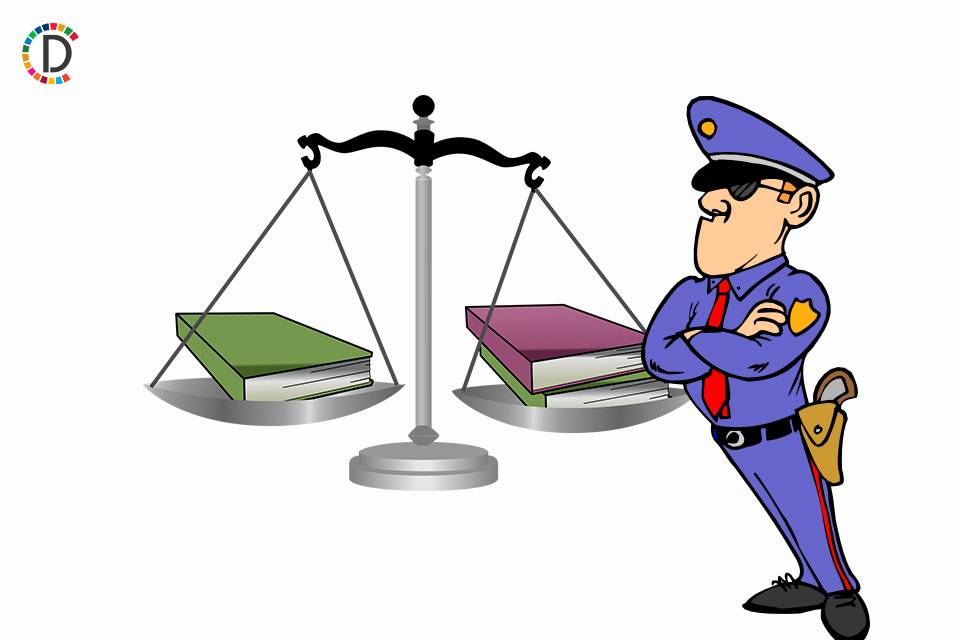Center should encourage states to decriminalise minor offences: Par panel

- Country:
- India
A parliamentary panel on Monday suggested the Centre encourage states and UTs to undertake the exercise for decriminalising minor offences on the lines Jan Vishwas Bill, with a view to promoting ease of doing business and living.
Jan Vishwas (amendment of provisions) Bill 2022, introduced in the Lok Sabha on December 22, seeks to decriminalise minor offences by amending 183 provisions in 42 Acts. It was referred to a 31-member joint committee of parliament for scrutiny.
''The committee recommend that the Union Government and DPIIT (Department for Promotion of Industry and Internal Trade) may issue suitable advisories to state governments and Union Territories to take suitable action on similar lines taken by the central government in reforming their laws and decriminalising minor offences by replacing punishments with monetary penalties, which shall also reduce the burden of cases in Judicial system and improve investors’ confidence,'' the report said.
Many approvals, clearances and litigations take place at the state level and therefore there is a need to simplify the compliance and requirements at the state level also, it said.
It also asked to continue such exercises in future by reviewing other acts too and bringing similar legislations before Parliament.
The commerce and industry ministry should appoint a group of experts which should be a full-time body consisting of legal professionals, industry bodies, members of the bureaucracy and regulatory authorities to examine many other provisions of various laws and suggest suitable amendments.
The committee stated that the government should amend the provisions with retrospective effect as it would help in reducing the backlog of court cases.
Further, it recommended that wherever feasible removal of imprisonment may be accompanied by levying of the penalty instead of a fine to avoid an increase in litigation.
Besides the decriminalisation of minor offences, the bill envisages the rationalisation of monetary penalties, depending on the gravity of the offence, bolstering trust-based governance.
The Acts which are being amended include The Drugs and Cosmetics Act, 1940; Public Debt Act, 1944; Pharmacy Act, 1948; Cinematograph Act, 1952; Copyright Act, 1957; Patents Act, 1970; Environment (Protection) Act, 1986; and Motor Vehicles Act, 1988.
The other laws include Trade Marks Act, 1999; Railways Act, 1989; Information Technology Act, 2000; Prevention of Money-laundering Act, 2002; Food Safety and Standards Act, 2006; Legal Metrology Act, 2009; and Factoring Regulation Act, 2011.
These 42 laws are administered by various Union ministries, including finance, food production and distribution, financial services, agriculture, commerce, environment, road transport and highways, posts, electronics and IT.
The committee was chaired by BJP member P P Chaudhary from the Lok Sabha. The other members include Sanjay Jaiswal, Rajendra Agrawal, Poonam Pramod Mahajan, Gaurav Gogoi, A Raja and Sougata Ray.
(This story has not been edited by Devdiscourse staff and is auto-generated from a syndicated feed.)
- READ MORE ON:
- Lok Sabha
- Gaurav Gogoi
- P P Chaudhary
- Sougata Ray
- Sanjay Jaiswal
- Information Technology Act
- Jan Vishwas Bill
- Rajendra Agrawal
- Poonam
- The Drugs and Cosmetics Act
- Jan Vishwas
- Pramod Mahajan
- Food Safety
- Legal Metrology Act
- Parliament
- Copyright Act
- Cinematograph Act
- Patents Act
- Trade Marks Act
- Railways Act










